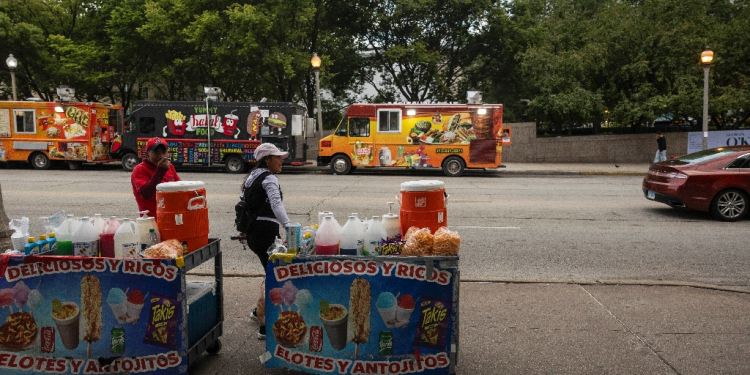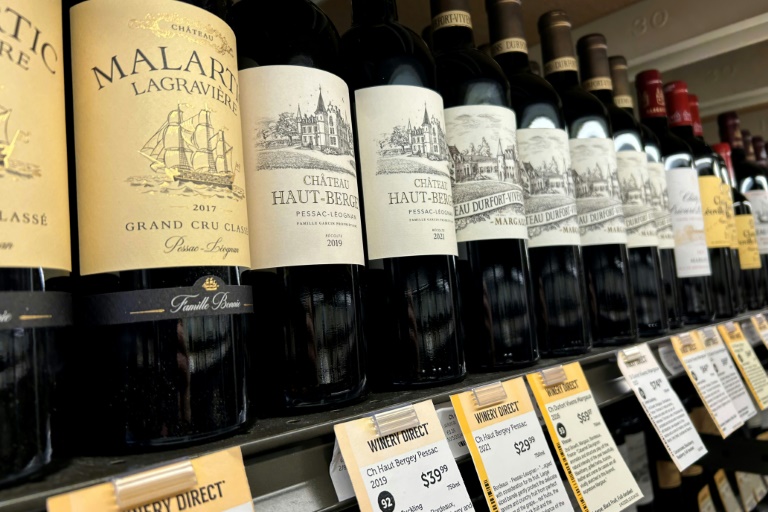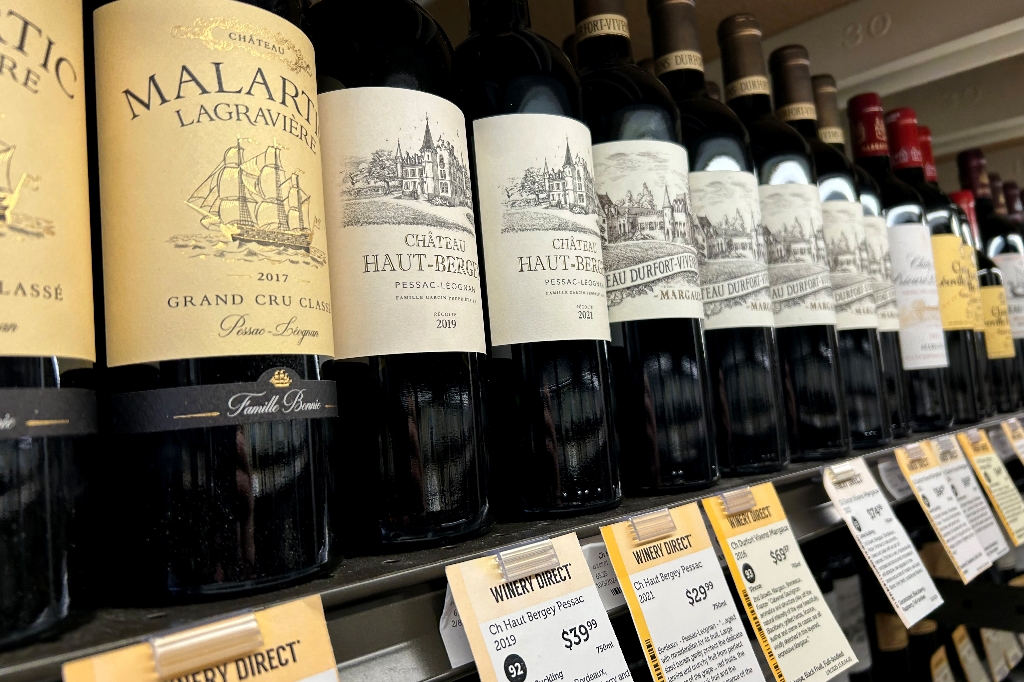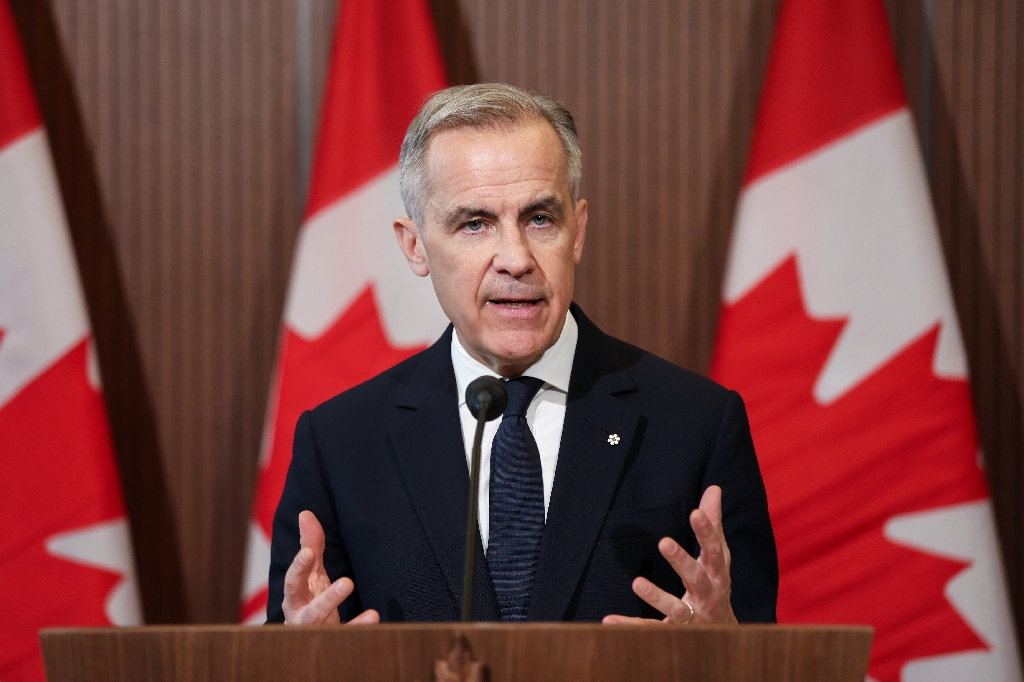(AFP) – When thousands of Democrats arrived in Chicago for this week’s party convention, one of the most difficult issues facing Kamala Harris’s presidential campaign was staring them in the face: immigrants looking for steady work or sleeping in tents. But the thorny subject — which many voters see as key ahead of the November election — was only placed front and center inside the United Center on day three of the convention. Texas congressman Veronica Escobar and Senator Chris Murphy of Connecticut were among those who addressed the border situation Wednesday, hailing Harris as the right person to ensure border security and push for immigration reform.
However, the lack of Latino voices on the list of speakers for the first two days of the Democratic National Convention did not go unnoticed by Latino attendees. “Why aren’t we important enough to speak on the stage?” said Rey Gonzalez, president of the nonprofit organization El Valor. “We’re a key constituent of the Democrats and a key voting bloc, and both parties want the Latino vote.”
– ‘Untenable’ – Immigration has been a bugbear for the administration of President Joe Biden, who withdrew from the White House race last month, making way for his vice president to carry the torch. Republican former president and candidate Donald Trump has capitalized on the discontent among some Americans about the issue, vowing to close the border and pledging to carry out mass deportations — which some Latino voters support.
Over the past two years, Chicago — America’s third largest city, on the shores of Lake Michigan — has taken in about 46,000 migrants, many of them sent on buses by Texas’s Republican Governor Greg Abbott in protest at White House policies. As the flow of migrants increased last year, Illinois’s Democratic Governor J.B. Pritzker was one of the few Democrats who called out the Biden administration, telling the White House its stance had created “an untenable situation for Illinois.”
Johanna, a Venezuelan who declined to disclose her last name, was one of the many migrants who arrived in Chicago that way. In June 2023, she crossed the US southern border with her four children. “We got on a bus without knowing where we were going,” the 36-year-old told AFP. “We arrived here.” She now sells empanadas and arepas as a street vendor in the Windy City, unable to find other work until her legal situation gets resolved.
Other migrants were seen selling fruit from carts or waiting outside hardware jobs, hoping to get picked up by contractors for a day’s work. Genesis Arteaga, a 20-year-old Ecuadoran immigrant, sat on the sidewalk with her infant daughter and a sign asking for donations. Her 22-year-old husband works temporary construction jobs while she begs for money. “I have tried working a cleaning job, but they will not let me because of my daughter, so I have nothing left but this,” Arteaga told AFP.
Migrants often have to wait months before they can apply for a work permit, and their cases are taking longer and longer due to excessive demand on the system that processes these requests. The delay increases pressure on local governments, which must use their own resources to accommodate new arrivals. Alejandra Oliva, an activist who assists migrants with navigating the legal system, says they face “all of these big uncertainties and inability to work within the system in order to get this very, very basic level of survival.” Oliva argues that any policy that centers on closing the border — from Democrats or Republicans — is a waste of time and resources. “This incredibly punitive system doesn’t work,” she said.
– ‘Kamala has to win’ – For those who have recently arrived in the United States, the November presidential election feels alien: they say they know little to nothing about Harris, but they do worry about a second term for Trump. “He keeps saying that he is going to deport us,” said Luisa Pacheco, a Venezuelan immigrant who sells fruit in downtown Chicago on the weekend. “That Kamala has to win.”
Recent opinion polls show rising anti-immigrant sentiment in US society. But for Oliva, it’s just how Americans are channeling their dissatisfaction with the economy. “It’s a lot easier to blame migrants than to actually take our politicians to task for the ways that they have failed people,” she said.
– Paula RAMON
© 2024 AFP





